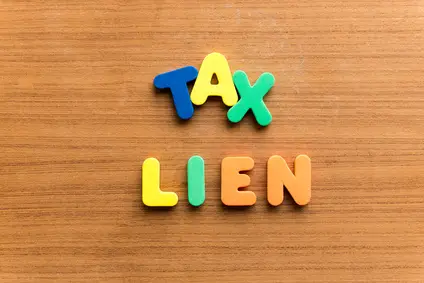Robust taxation is one of the cornerstones of a prosperous economy and the United States is no exception. The Internal Revenue Service is responsible for regulating tax-related issues in the nation. It deploys various tools and tactics to collect past-due taxes. One such tool is the feared IRS tax lien notice, which makes taxpayers take legal assistance to prevent escalation to the seizure of assets. However, before contacting an IRS attorney, it is advisable to have a basic understanding of the tax lien. Continue reading as we present a quick guide to the IRS tax lien.
Overview
A federal tax lien is a legal document that ensures the claim of the IRS, ahead of the creditors, in a taxpayer's assets in the event of prolonged non-filing or non-payment of taxes. The lien may be placed on assets such as financial assets, real estate, vehicles, and personal property. If the taxpayer failed to respond to the lien notice or pay the due taxes, it will trigger the process of a levy, in which the aforesaid assets will be seized by the IRS. Unlike other liens issued by the state and local authorities, the federal lien continues to be in effect after the taxpayer has filed for bankruptcy. In case you have received such a notice, it is advisable to consult an experienced tax line attorney for hassle-free tax lien assistance.
Ways to escape a lien
When it comes to removing a tax lien, paying your due in full is the best way, but you can consider the following options:
- Discharge Of Property: The discharge of property exempts some of your properties from the effects of the lien.
- Subordination: A subordination doesn’t revoke the lien but allows other creditors to become the stakeholders for the asset to be auctioned or sold.
- Withdrawal: An IRS lien withdrawal removes the public notice of the lien, however, the taxpayer is still liable to pay the due tax.
Resources for tax lien assistance
You can consider the following resources for tax lien assistance:
-
- Collection Advisory Group: You can visit the local advisory office for intricate issues such as subordination, discharge, or withdrawal and the contact information can be found in Publication 4235, Collection Advisory Group Addresses (PDF).
- Centralized Lien Operation: This is useful to resolve routine lien issues such as verifying a lien, or releasing the lien. Contact 800-913-6050 or e-fax 855-390-3530.
- Office of Appeals: You can appeal any miscalculations in the evaluation of the lien by the IRS. For more information, refer to Publication 1660, Collection Appeal Rights (PDF).
- Centralized Insolvency Operation (CIO): You can approach the CIO office if considering questioning the status of your bankruptcy and its impact on your overall dues, call 800-973-0424.
- Local tax lien attorney: If you find dealing with a lien notice complex, it is advisable to consult an IRS lawyer nearby. For instance, if you are looking for IRS tax lien assistance in Dallas, then you should hire a Dallas IRS lawyer that can help you navigate through these complexities.
Final Word
Dealing with the lien is a complex process that involves several intricacies such as understanding the eligibility for the relief options available, filing the right form, and gathering & submitting the required documents. When looking for IRS tax lien help, choose an experienced attorney that understands your case and provides a comprehensive tax solution best suited for you.






